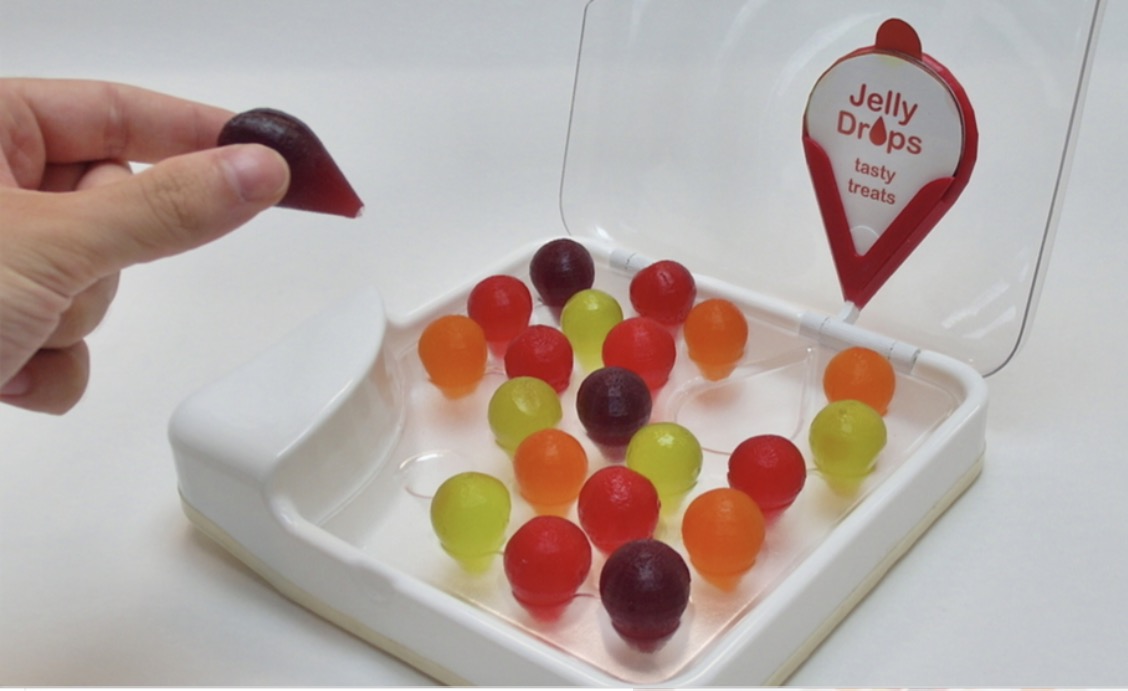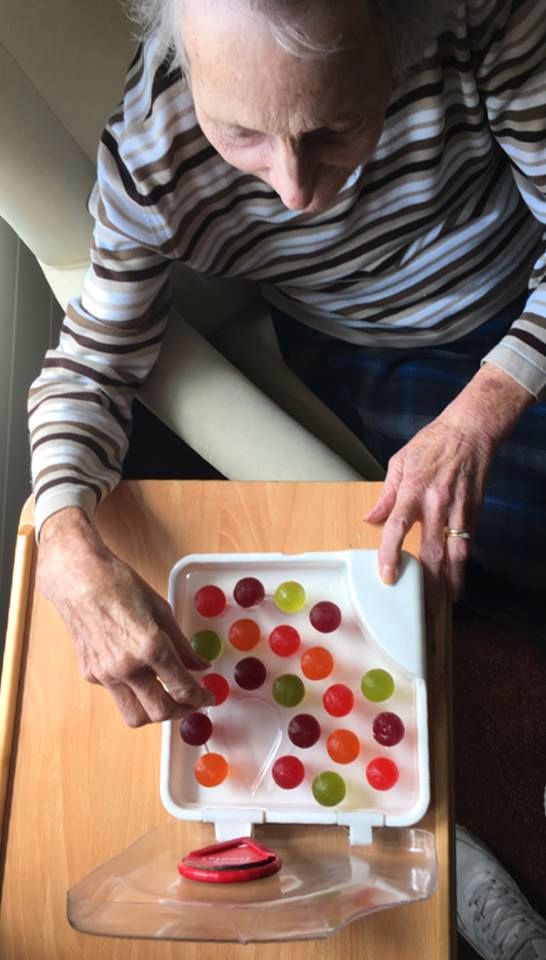Edible Water Ball “Jelly Drops” Invented for Elderly with Dementia
Share
When a patient with dementia progresses. It becomes a challenge to caregivers, or loved ones to make sure that they are getting enough food and liquids. Especially when they are not in hospice care yet. Dementia sufferers are prone to dehydration
Lewis Hornby, a student from London came up with a wonderful solution for his grandmother who is suffering from dementia. Edible water jelly drops.
Common Symptoms of Dehydration
- muscle cramps
- dry mouth
- lips and tongue
- sunken eyes
- dry
- inelastic skin
- drowsiness
- confusion
- disorientation
- dizziness
- low blood pressure
- darker urine.
 Lewis Hornby, a student from London came up with a wonderful solution for his grandmother who is suffering from dementia. Edible water jelly drops.
Lewis Hornby, a student from London came up with a wonderful solution for his grandmother who is suffering from dementia. Edible water jelly drops.
For people with dementia, the symptoms of dehydration are often mistakenly attributed
to their underlying condition, meaning it can easily go unnoticed until it becomes life-threatening. About a year ago, my grandma was unexpectedly rushed to the hospital; she was found to be severly dehydrated. Thankfully, after 24 hours on IV fluids, she was back to her normal happy self and is still enjoying a good quality of life to this day.
Jelly Drops to Keep Seniors Hydrated
Hornby came up with were Jelly Drops—bright coloured bite-sized balls of liquid that are easier to take than water but just as hydrating. These jellies are made of 90% water with electrolytes to aid in hydration.
Once he was familiar with what dementia patients need, he brainstormed what they want. “From my observations, people with dementia find eating much easier than drinking. Even still, it can be difficult to engage and encourage them to eat. I found the best way to overcome this is to offer them a treat! This format excites people with dementia, they instantly recognise it and know how to interact with it.”
Hornby’s own grandmother’s reaction?
When first offered, grandma ate seven Jelly Drops in 10 minutes, the equivalent to a cup full of water—something that would usually take hours and require much more assistance.
Though Jelly Drops is still in its trial phase, it has already earned Hornby two honors: the Helen Hamlyn Design Award – Snowdon Award for Disa
By offering residents colorful jellies from a box, Hornby discovered people that would usually ignore him, would excitedly take many. When first gave this to his grandma, she ate 7 Jelly Drops in 10 minutes–the equivalent of a cup full of water!

Hornby carefully thought through the packaging of his Jelly Drops as well. The clear plastic box allows patients to see the goodies inside without lifting the lid, making the Jelly Drops easier to find if misplaced and easier to remember to eat. There’s also a special handle on one corner so that users can open the lid without putting down the box. Then a locking hinge holds the lid in its upright position, freeing a hand to eat with. This is particularly important since many dementia patients struggle to plan and execute sequences of actions.
This amazing invention will help thousands of dementia patients get the hydration they need to stay comfortable, healthy, and happy!











